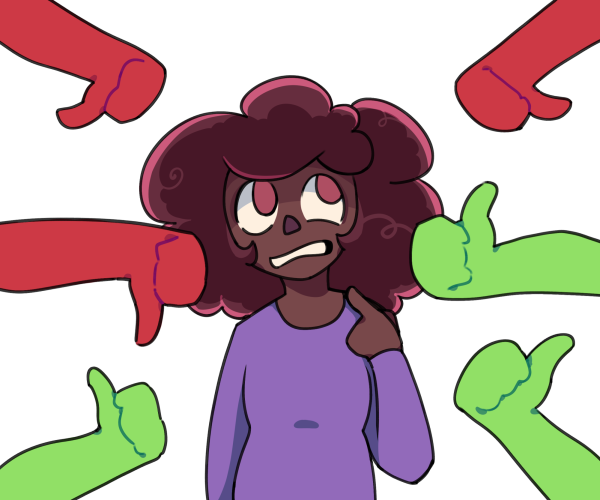Sex education in America suffers under societal taboo
March 16, 2020
Let’s talk about sex!
If that sentence made you a little uncomfortable, I’m not surprised. As we have all probably gathered from the giggles and grimaces that fill our health classes, sex is one of the most taboo topics in America. I am a firm believer that it shouldn’t be.
When I was in fifth grade, my PE teacher apologized to the class before she first taught us what puberty was and my young peers started giggling about sex before we even knew what the word meant. From the way our teacher approached the topic with hesitation and slight embarrassment, my classmates and I knew straight away that sex was a touchy subject. There is such a deep culture about sex being intrinsically wrong, scary and dangerous that adults in our country often choose to avoid addressing it at all.
This culture of discomfort and awkwardness only continues as we grow up. We absorb toxic societal beliefs like how boys can talk freely about sex while girls must plug their ears and protect their innocence. Our image of intimacy is tainted as abstinence is shoved down our throats, queer sex is severely overlooked and STIs are deemed shameful and disgusting.
These attitudes are really harmful to those who call the U.S. home, especially teenagers. And while sex education has dramatically improved since the 20th century, it is only mandatory in twenty-four U.S. states and the District of Columbia, according to the National Conference of State Legislatures.
However, these stigmas surrounding sex are not universal. The PBS article “The case for starting sex education in kindergarten” reports that in the Netherlands all schoolchildren are required to learn some form of sex education starting as early as four years old. This approach, called “comprehensive sex education” teaches concepts like consent, contraception and gender identity to middle schoolers—ideas I did not learn about until high school.
Younger kids discuss what to do when you have a crush and how to handle emotions in a healthy way. Teachers and parents simply talking about intimacy in this way is just what Americans need.
So as conversations about sex in America are few and far between, when they happen, they are a really big deal. Kids dread “the sex talk” from their parents. It’s awkward and uncomfortable and it creates a deep aversion to learning about sex. But if parents and teachers are too scared to get real about sex, then teens will continue to engage in sexual risk behaviors.
Studies have shown that when it comes to practicing safe sex, Americans kind of suck. In 2019, the number of STIs that Americans contracted rose for the fifth consecutive year in a row, according to the Centers for Disease Control and Prevention (CDC). The CDC cited stigmas surrounding STIs and a decrease in condom usage as two potential reasons for this consistent climb.
So while teens in the Netherlands can get free birth control pills until they are 21 and purchase condoms from vending machines (PBS), Planned Parenthood reports that, in 2010, only 39 percent of American students were taught how to correctly use a condom.
And, to me, that isn’t shocking. Can you imagine how many moms would storm Facebook complaining about vending machine condoms? Our society just hasn’t normalized sex to the same point the Dutch have.
However, I can’t deny that Americans are improving. South’s curriculum includes conversations about sexuality and gender identity (though the majority of the curriculum is still geared towards heterosexual relationships) and media representation of teen sexuality has also improved. Netflix originals like Big Mouth and Sex Education both delve into some of America’s most taboo sex topics, such as female masturbation and queer relationships.
So while I applaud these efforts, I still beg that we continue to talk about sex openly and honestly. I propose that we follow a sex education model similar to that of the new sex education plan adopted in Chicago Public Schools. CPS requires that schools must teach sexual health education every year, 300 minutes per year in k-4th grade and 675 minutes per year in 5th-12th grades, according to the Chicago Public Schools website.
By starting sex education from a young age, American students can grow up in an environment that places their health above traditional beliefs. Kids should not be afraid to ask their parents or teachers seemingly uncomfortable questions, sexually active teens should not be ashamed to get tested and treated for STIs and queer kids should not have to resort to consulting the internet when their school system neglects to address the needs of their community.
So to all the parents who are hesitant to speak openly with their children, don’t be afraid to tell your four-year-old what “consent” means or why couples like to hold hands. Teachers, continue to build a curriculum that includes information relevant to all communities. And students, pay attention in health class and be safe.












